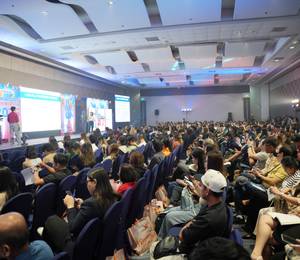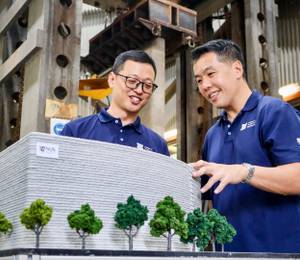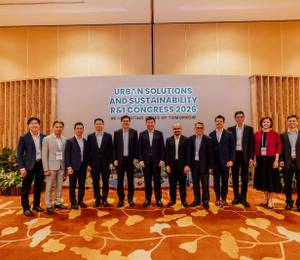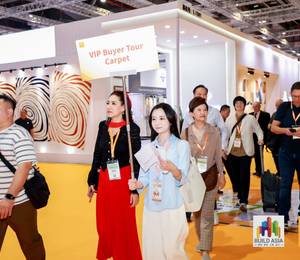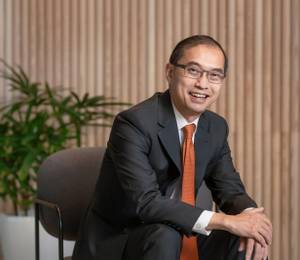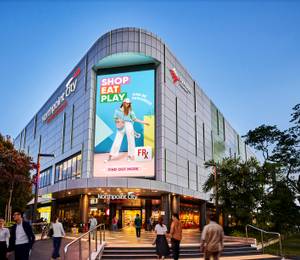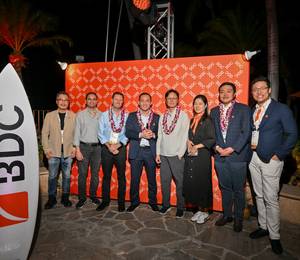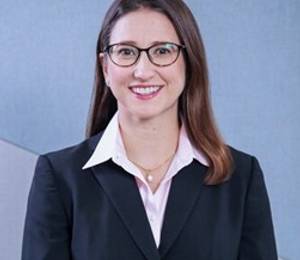At the Singapore Green Building Council (SGBC)’s Gala Dinner, held on 11 July 2025, Singapore marked a significant milestone in its green building journey with the 20th anniversary of the BCA Green Mark certification scheme.
Two Decades of Green Building Excellence
Launched 20 years ago by the Building and Construction Authority (BCA) with just 17 certified buildings, Singapore now boasts 2,590 Green Mark-certified buildings as of March 2025. These green buildings collectively save over 4.2 billion kWh of energy annually, equivalent to powering 1 million 4-room HDB flats and saving S$1.3 billion per year. The carbon emissions offset by these buildings are equivalent to replanting a forest more than 13 times the size of Singapore.
Singapore’s green building expertise has also gained international recognition. Local sustainability consultants such as G-Energy Global and GreenA Consultants have successfully globalised their expertise, with notable achievements including Wisma BCA Foresta, HQ of PT Bank Central Asia Tbk, Indonesia’s first Green Mark Super Low Energy (SLE) certified building, and Sobha One in Dubai—a new premium luxury condominium estate that is the Middle East’s first Green Mark Platinum SLE development.
To commemorate the 20th anniversary of the BCA Green Mark certification scheme, BCA and SGBC recognised the significant support and contributions of 20 firms and building projects to Singapore’s green building journey, including City Development Limited (CDL), CapitaLand, Mapletree, Keppel, Lendlease, JTC, HDB, NTU, and NUS.
Economic and Social Benefits of Green Buildings
The business case for BCA Green Mark certification has been proven in Singapore. New commercial buildings with the highest Green Mark Super Low Energy certification can recover their sustainability investments in about 5 to 6 years, while achieving average energy savings of 59%.
Recent market analysis by Cushman and Wakefield also showed that Green Mark-certified buildings in the CBD commanded premium rents up to 12% higher than non-Green Mark-certified properties, with consistently higher occupancy rates.
The benefits of Green Mark buildings extend well beyond financial returns, delivering significant improvements to the health and well-being of occupants. Joint research by BCA and the National University of Singapore (NUS) also showed that Green Mark-certified buildings maintain better indoor environmental conditions, with lower concentrations of pollutants and significantly fewer reported health-related symptoms among occupants.
These findings underscore the BCA Green Mark certification scheme’s role in creating environmentally sustainable and healthier workspaces for Singapore’s workforce.
Bridging Green Buildings with Sustainable Finance
At the Dinner, Minister Chee also announced the publication of an Insights Report that aims to bridge the gap between green buildings and sustainable finance in the Asia Pacific region. This is the first in a new series of regional publications developed to support the transition towards a more sustainable, circular, and resilient built environment across Asia Pacific.
Led by the World Green Building Council (WorldGBC), with strong support from OCBC and Asia Pacific green building councils (including SGBC), the Report offers a concise yet strategic overview of the current state of readiness across the sector, presenting key messages and early observations drawn from multi-stakeholder engagement, regional data, and global trends.
The Report highlights the urgent need for systemic change in how we design, build, use, and recover building materials, identifying the policy, industry, and financial levers that can help accelerate this transition. Together, the three-part publication suite will form a common reference point for policymakers and market actors, supporting more coherent action, investment alignment, and measurable progress across the Built Environment sector.
“As we celebrate the BCA Green Mark certification scheme’s 20th anniversary, this new series of publications represents the next frontier in our green building journey,” said Mr Allen Ang, President of SGBC.
“Singapore’s two decades of experience in greening the built environment have laid a strong foundation for this regional initiative. By analysing regional data and global trends, we’ve identified critical policy, industry and financial levers to accelerate the transition to circular, low-carbon construction. These findings will serve as a vital reference point to align investments and drive measurable progress across Asia Pacific, building on the success we’ve achieved with BCA Green Mark.”
Charting the Path Forward for Decarbonising the Built Environment
To chart the path for Singapore’s next set of decarbonisation goals beyond 2030, Minister for National Development, Mr Chee Hong Tat, also announced the development of an updated Built Environment Decarbonisation Technology Roadmap, outlining key emerging technologies and areas for research and development to improve energy efficiency in Singapore’s built environment.
Building upon the foundations of the SLE Building Technology Roadmap launched in 2018, this latest development will identify crucial technologies and implementation timelines that will enable the sector to meet its sustainability goals. It will undergo public consultation to gather insights from industry stakeholders and members of the public before it is launched.
Complementing the roadmap, BCA also launched a new technical reference for hybrid cooling, aiming to accelerate the deployment of hybrid cooling systems by providing comprehensive guidelines for the implementation of energy-efficient cooling systems in buildings. This reference will help building owners and developers adopt more sustainable cooling solutions, especially in the context of Singapore’s tropical climate.
Mr Tan Chee Kiat, Deputy CEO for Industry Development at BCA, said, “The BCA Green Mark certification scheme has evolved from a pioneering initiative to evaluate a building’s environmental impact and performance to become Singapore’s hallmark of championing sustainable building excellence. As we mark this milestone, we urge developers and building owners to aim higher—be it achieving Green Mark Super Low Energy certification for new projects, or upgrading existing buildings to higher standards. BCA will continue supporting the industry in charting the way forward. The future is about green real estate, and there has never been a better time to invest in sustainability.”
